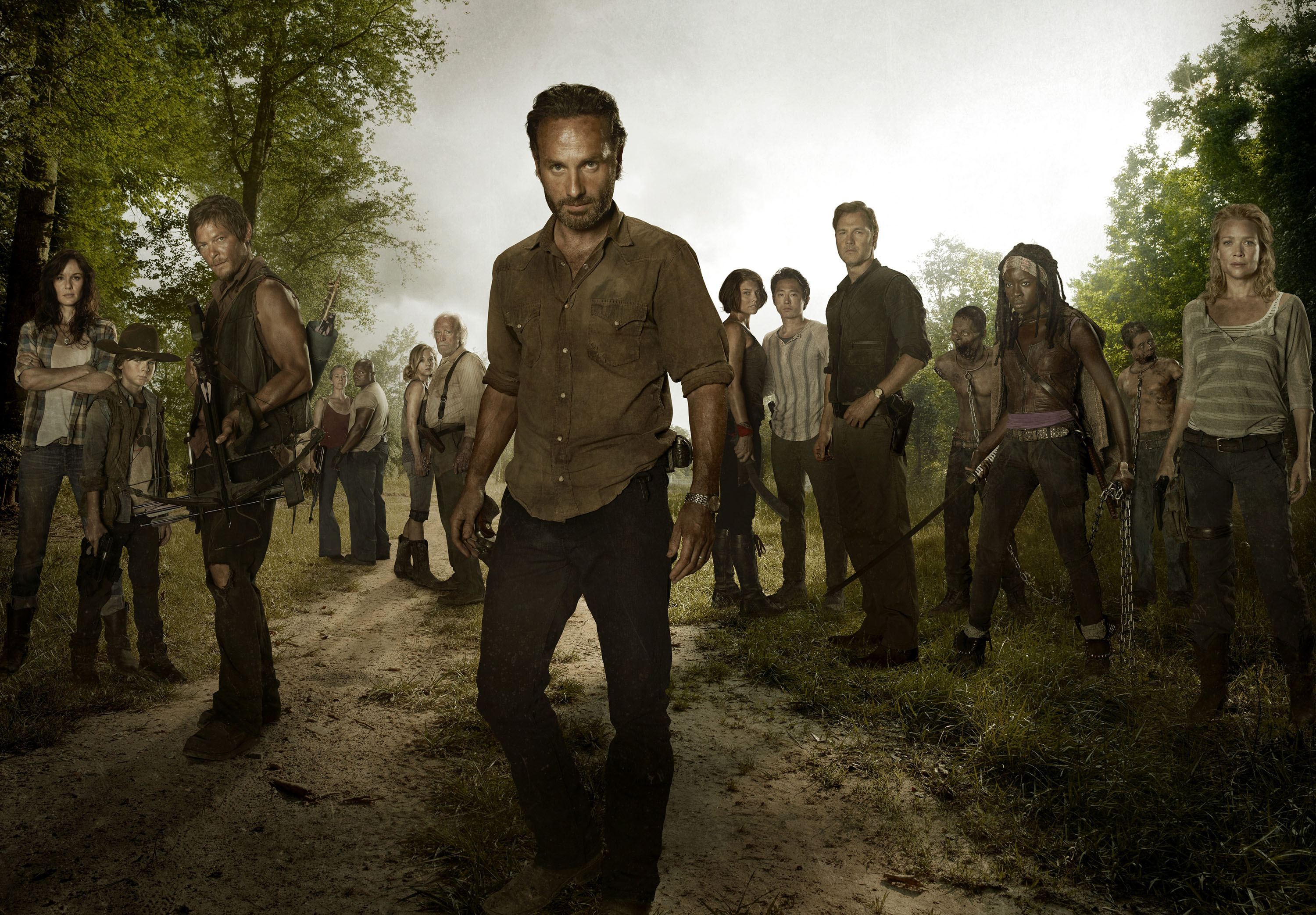Every so often a really great TV show comes along and it leaves an indelible imprint on us. Lost, which premiered back in September 2004, was one of those shows and it’s actually kind of interesting how people still mention it from time to time to this day; especially when the topic revolves around controversial show endings. Fast forward to 2014 and not many shows could be considered serious contenders to fill the void that was left by Lost when it went off the air in 2010, except for the current television hit Walking Dead. These two shows may appear to differ, but really they are more alike than you may have thought.
Character Development
I would imagine it is quite difficult to write about upwards of ten characters or so and make them all interesting. However, it’s not completely impossible as we’ve seen in the past with shows like Lost. Like Lost, the Walking Dead (whose original storyline came from a comic book series) manages to successfully portray a sizable cast of characters, all of whom at some point you can’t help but find intriguing. Granted, some characters are easier to watch than others (or even like for that matter), but what’s even more exciting is when the writers convince you that your preconceived notions about a particular character may have been rash and judgmental. I bet many viewers didn’t realize this while they were watching Lost before it went off the air or realize it now with Walking Dead, but perhaps that is indeed one of the goals of the writers: to get people to challenge their opinions about a particular subject matter. Smart TV is what I call it, even if it is a bit of an oxymoron.
The Element of Nature
Nature plays an integral role in both shows. In Lost, which took place on a seemingly deserted tropical island, the surviving passengers from the plane crash were forced to coexist with nature unlike never before. Specifically, they were forced to learn the basics of survival within their new environment, all while struggling to cope with their loss of loved ones and the possibility of not returning to their former lives. Nature, proved to be quite a challenge for much of the group and as we saw throughout the show, only the surviving passengers who were able to adapt quickly were the ones who survived the longest. The same can be said with the survivors in the post apocalyptic world that caused humans to turn into zombies in the Walking Dead. Although the Walking Dead takes place on the continental United States (starting out near the city of Atlanta), the survivors are forced to go back to basics as they struggled to stay clothed, and find food and shelter away from the prying hands of bloodthirsty zombies. At times, nature is their friend, and at other times nature is a yet another enemy.
Spiritual Conflicts
As one could imagine, being one of a few survivors that are forced into a primitive situation would rock just about anyone to their very core, whether it was the result of a plane crash or the result of a post apocalyptic world. So, it was no surprise to see the writers of Lost and now the Walking Dead explore this obvious facet of survivor remorse, which inevitably involves ones take on spirituality. Although one could argue that the entire premise of Lost had a spiritual connotation because they were all apparently dead according to the series finale reveal, in Walking Dead, however, this is not the case. Don’t get me wrong, clearly there is a strong undertone of spirituality that impacts the actions of each of the characters at some point throughout the series, especially as they each find themselves facing the fragility of life on a daily basis, but it is too soon to say definitively where the show will end up on this topic.
Ultimately, what you have with both Lost and the Walking Dead are two shows that are able to transcend the obvious story lines (i.e. post-apocalyptic world filled with zombies and a mysterious plane crash) to deliver a more impactful message. Both shows are about the human experience; specifically, the human experience as it relates to people and their struggle to deal with others in times of crisis as well as issues with their own individual spirituality. These elements not only make both shows relatable, but also more meaningful, which is why viewers have responded so strongly to both.

